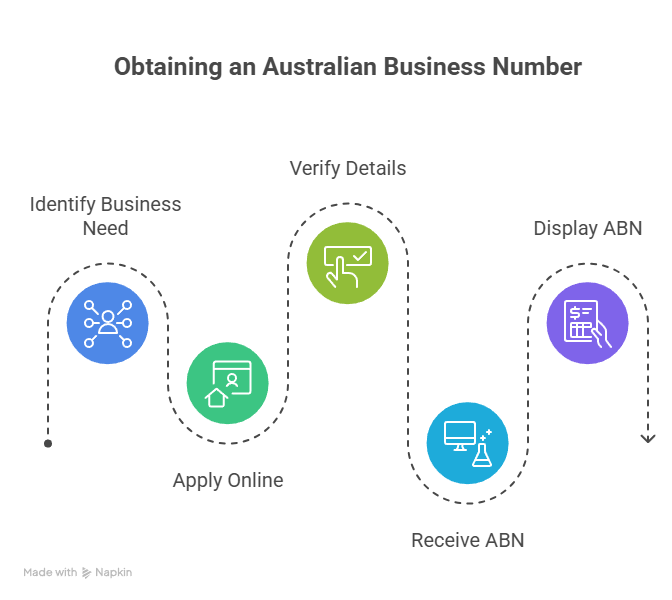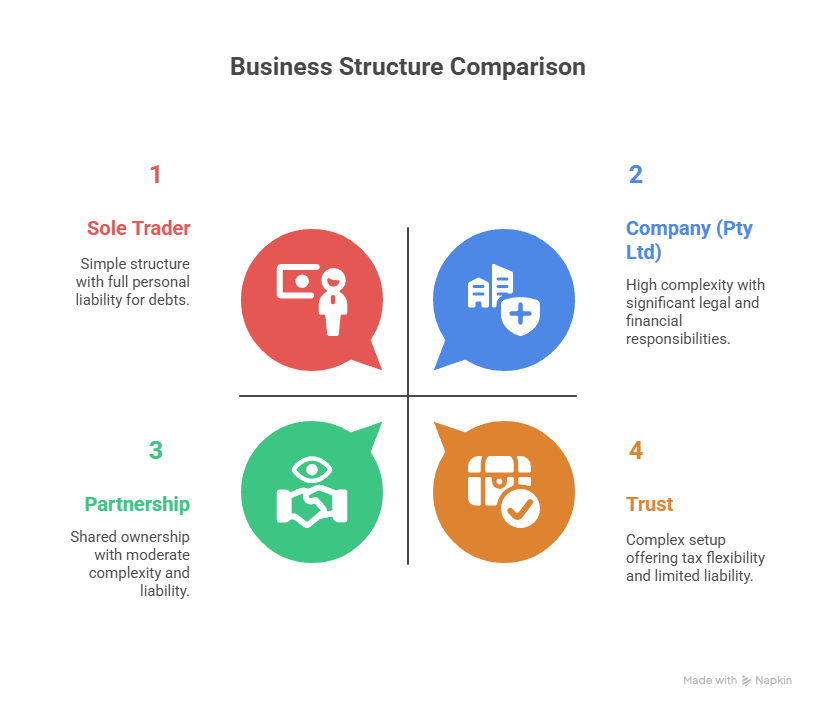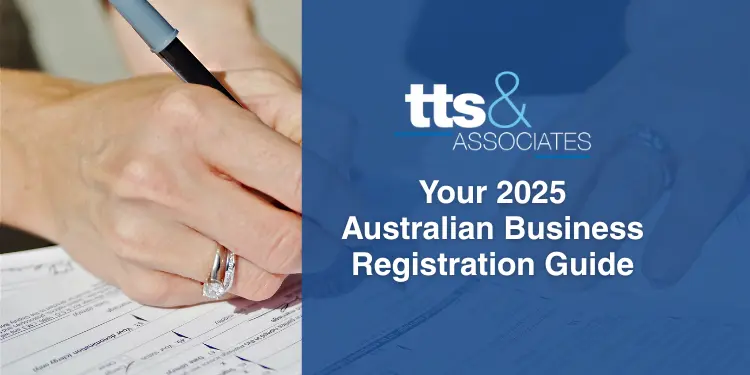Starting a business in Australia requires registering key information with government agencies. The first step is applying for an Australian Business Number (ABN). This is an 11-digit number that identifies your business to the government. You can apply for an ABN online (it’s free via the Australian Business Register), and if your details are correct you will typically receive it immediately. Be sure to display your ABN on official documents and invoices. For example:
- Registering for GST and PAYG withholding requires an ABN.
- You need an ABN to issue tax invoices and receive payments.
- You can claim GST credits on eligible purchases once GST-registered.
- The ABN connects your business to the ATO’s systems.

Every business trading under a name other than the owner’s legal name must register that business name. ASIC explains that a business name is your trading name, and you must register it unless you trade strictly under your own name. For instance, a sole trader named John Smith does not need to register “John Smith,” but would need to register “John Smith Plumbing” if that is the trading name. You can register business names online via ASIC or through the Australian Government’s Business Registration Service.
Apart from ABN and name, register any other necessary tax accounts. For example, your business must register for Goods and Services Tax (GST) if your projected turnover is $75,000 or more per year. GST is a 10% tax on most goods and services in Australia. Once registered, you will charge GST on sales and can claim credits on business purchases. You will lodge a Business Activity Statement (BAS) each quarter (or month, if applicable) to report GST and other taxes. You must also register for Pay As You Go (PAYG) withholding if you hire employees, so you can withhold tax from wages and remit it to the ATO.
Choose a suitable business structure. Common options include:
- Sole trader – You operate the business yourself, using your personal Tax File Number (TFN) and ABN. You can trade under a registered business name (or your own name). You are personally liable for all business debts.
- Partnership – Ownership is shared between two or more people. The partnership needs an ABN (and business name, if trading under a name). Partners use their personal TFNs but share profit and loss. Partners are personally liable for debts. It’s wise to have a partnership agreement in writing.
- Company (Pty Ltd) – A separate legal entity with limited liability. You register the company with ASIC (obtaining an Australian Company Number, ACN) and then get an ABN for the company. Companies have stricter reporting (annual ASIC statements and tax returns) and directors have legal duties.
- Trust – A trust holds business assets for beneficiaries. The trustee operates the business. Trusts require an ABN, trust deed and often professional advice. They can offer tax flexibility but are more complex to set up.

Each structure has different tax and legal implications. For example, a company pays its own corporate tax and lodges separate tax returns. Choose carefully or seek advice from an accountant or business advisor.
You should also consider state requirements. Some businesses need state licenses or registrations (e.g. trading licenses, liquor licenses, regulatory accreditations). Use the Australian Business Licence and Information Service (ABLIS) on business.gov.au to find licences relevant to your industry and location. For example, a café might need food safety permits, and a tradie would need the appropriate building or plumbing licenses.
Finally, plan your finances and insurance. Keep track of your startup costs and arrange funding if needed. Open a business bank account for all transactions. Obtain insurance to protect your business and you personally – public liability insurance is often essential if you serve customers face-to-face, and professional indemnity insurance is important if you provide advice or professional services. If you hire staff, workers’ compensation insurance is mandatory; you must arrange it through your state or territory’s insurance scheme. Proper insurance and clear records set a solid foundation for your new venture.
General information only – seek professional advice before acting.




